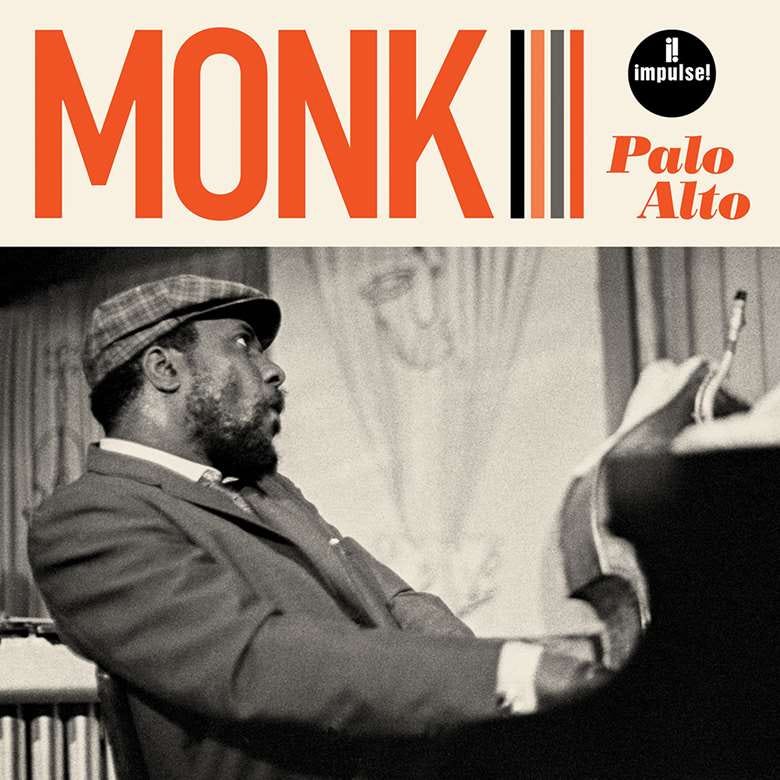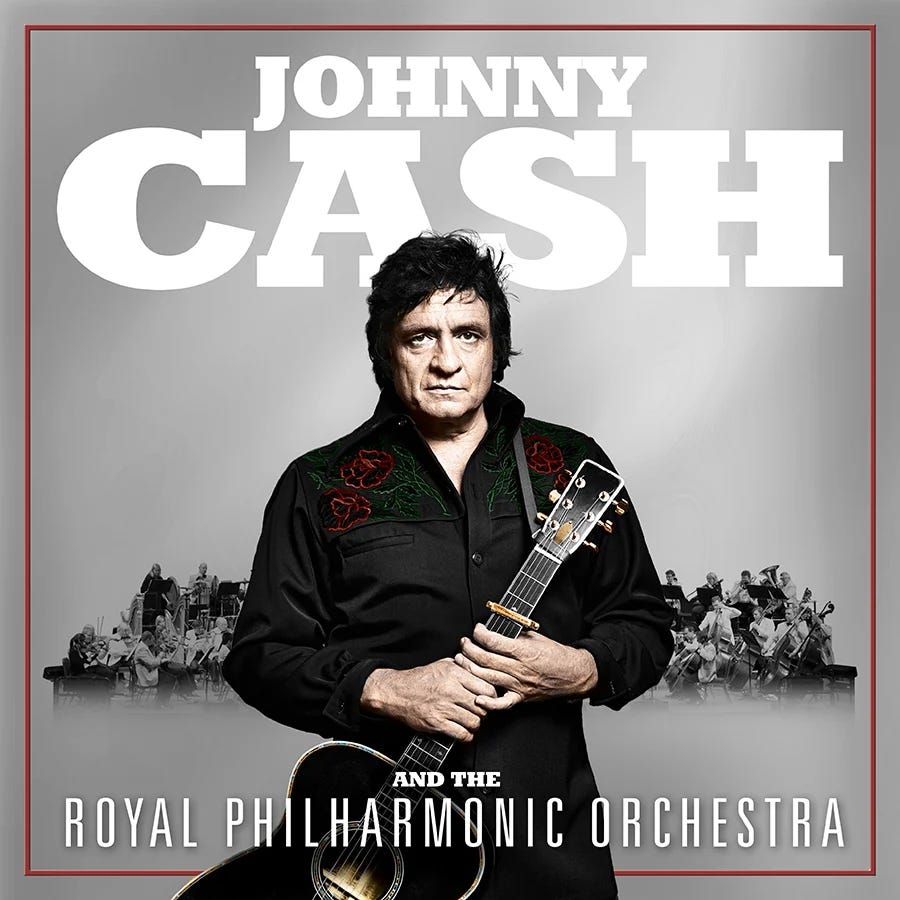Back To School with Thelonious Monk
A BIT MORE OF MONK’S MOOD: Thelonious Monk captured at a high school in California on Palo Alto (Impulse!)

To hear an improvising artist at peak, conventional wisdom says to seek out instances where the stakes were high and the lights were bright. Carnegie Hall. The Village Vanguard.
Except: Sometimes the peak moments happen when the corner bar is half-empty, lights are low and the pressure is off.
The recent discovery of a recording by the Thelonious Monk quartet performing at a high school in Palo Alto in the fall of 1968 – released just now as Palo Alto – offers some perspective on this. It’s not the most genius Monk on record. It is not the most heated or the most uniformly riveting performance.
But it’s alive with a free-swinging feeling of let’s-try-this that’s not shared by all of Monk’s live performances from the late ‘60s. The pianist’s group was in the middle of a three-week run at San Francisco’s Jazz Workshop, then among the city’s esteemed venues for jazz, when a 16-year-old student named Danny Scher rang him up and proposed the concert in Palo Alto. Arrangements were made for an early evening performance on October 27. The school’s janitor was in charge of the recording equipment – and we are all in his debt, because it’s a crisp, surprisingly balanced document.
We don’t know what Monk and his touring group – saxophonist Charlie Rouse, bassist Larry Gales and drummer Ben Riley – thought about this one-off gig as they walked in. But on the recording, the quartet sounds like it’s out for a lark, possibly enjoying a respite from the serious business of the nightly club gig. Monk was an established star by this point, he’d sold lots of records and appeared on the cover of Time magazine; those in attendance at Palo Alto were thrilled to the point of wolf-whistles just to hear him in person. For this crowd, Monk in a mildly exploratory mood was more than enough.
And they got a bit more than that. The set opens with “Ruby My Dear,” one of Monk’s most rhapsodic melodies. Rouse leans into its hairpin turns, but frequently the focus shifts to Monk’s whimsical background lines, which rattle around like ghosts making trouble for dinner guests in a dining room.
When it’s the pianist’s turn to solo on the expansive 13-minute version of “Well You Needn’t,” he begins his first chorus by fracturing the melody into a modernist tableaux, and starts his second with a series of perfectly executed ascending stairstepping scales in thirds. Maybe it’s just a throat-clearing aside; maybe it’s Monk, inspired by the academic setting, getting some practice in. Genius either way. Also genius: Monk’s casual solo ramble, with occasional detours into stride, through the standard “Don’t Blame Me.”
It’s possible to get a bit cynical about these out-of-nowhere archive discoveries. The origin stories can seem fantastical. And in some cases, like with Palo Alto, the music seems almost too significant to have ever been overlooked, discarded, or relegated to an attic. Then you have to remember that in the 1950s and ‘60s, bands like Monk’s worked constantly, and often that work was documented – either officially by the labels or enterprising fans or, in this case, a janitor pressed into service as an engineer.
—TM 9.18.20


AT LONG LAST, JOHNNY CASH WITH THE ROYAL PHILHARMONIC
The major labels sometimes do smart things to nurture and tend the catalogs of their long-dead big stars.
But not always. Sometimes, even a beloved world icon has his or her voice dropped into the middle of a profit-motivated bowl of mush. Mush that’s been cooked from reconstituted bits of vintage records, sweetened with extra string arranging sauce, transformed into a fundamentally different thing.
It happened eons ago to Nat King Cole, with the disembodied duets. Elvis Presley’s love songs got symphonic treatment in 2015. It happened to Ella Fitzgerald in 2017, when Verve “celebrated” her centennial year by digitally snipping her vocals from small-group dates of the 1950s and dropping them into schmaltzy newly created London Symphony Orchestra backing. That one was an eerie and antiseptic low point in this sad niche, an entirely unnecessary exercise.
Now it’s Johnny Cash’s turn. Columbia Legacy announced this week that it’s bringing out Johnny Cash with the Royal Philharmonic Orchestra, a 12-track set that situates vintage Cash vocals within accompaniments recorded recently at Abbey Road Studios. Out November 13, and on vinyl.
The reflex reaction is to groan. Think about the texture of Cash’s voice, and the way it was presented on countless studio records. Its texture and towering presence and depth is the result of careful studio essentializing. We connect to that sound immediately because there is not too much around it: there’s space between Cash and the supporting musicians, and that openness acts as a magnifier, a force multiplier.
To swap the often minimal original works for the machinations of an orchestra is to misunderstand Cash’s art, trampling the stark purity of the original works for facile high-priced lushness. Most of the vocals are sourced from the well-known hit recordings, but two of them – versions of “I Walk the Line” and “Flesh and Blood” – have not been widely heard before. They’re alternate takes from sessions related to the soundtrack of the 1970 film I Walk The Line, starring Gregory Peck and Tuesday Weld.
Another notable track is “Highwayman,” written by Jimmy Webb in the ‘70s and recorded by Cash, Willie Nelson, Waylon Jennings and Kris Kristofferson for the 1985 debut of the supergroup known as The Highwaymen. The Columbia press release quotes Webb saying he long wondered what “it might sound like if Johnny Cash and his three bandmates had an orchestra and lush strings behind them.”
Through the miracle of digital recording technology, we don’t need to wonder anymore. But is that progress?
—TM 9.18.20
**********
Get EchoLocator delivered to your inbox! Subscribe here: <iframe src="https://echolocator.substack.com/embed" width="480" height="320" style="border:1px solid #EEE; background:white;" frameborder="0" scrolling="no"></iframe>




I confess to loving Johnnie Cash, and I own recordings of everything he did with The Highwaymen. But to do them now with a symphony? I don’t know that I’m feeling it. Will definitely have to wait and see on that.